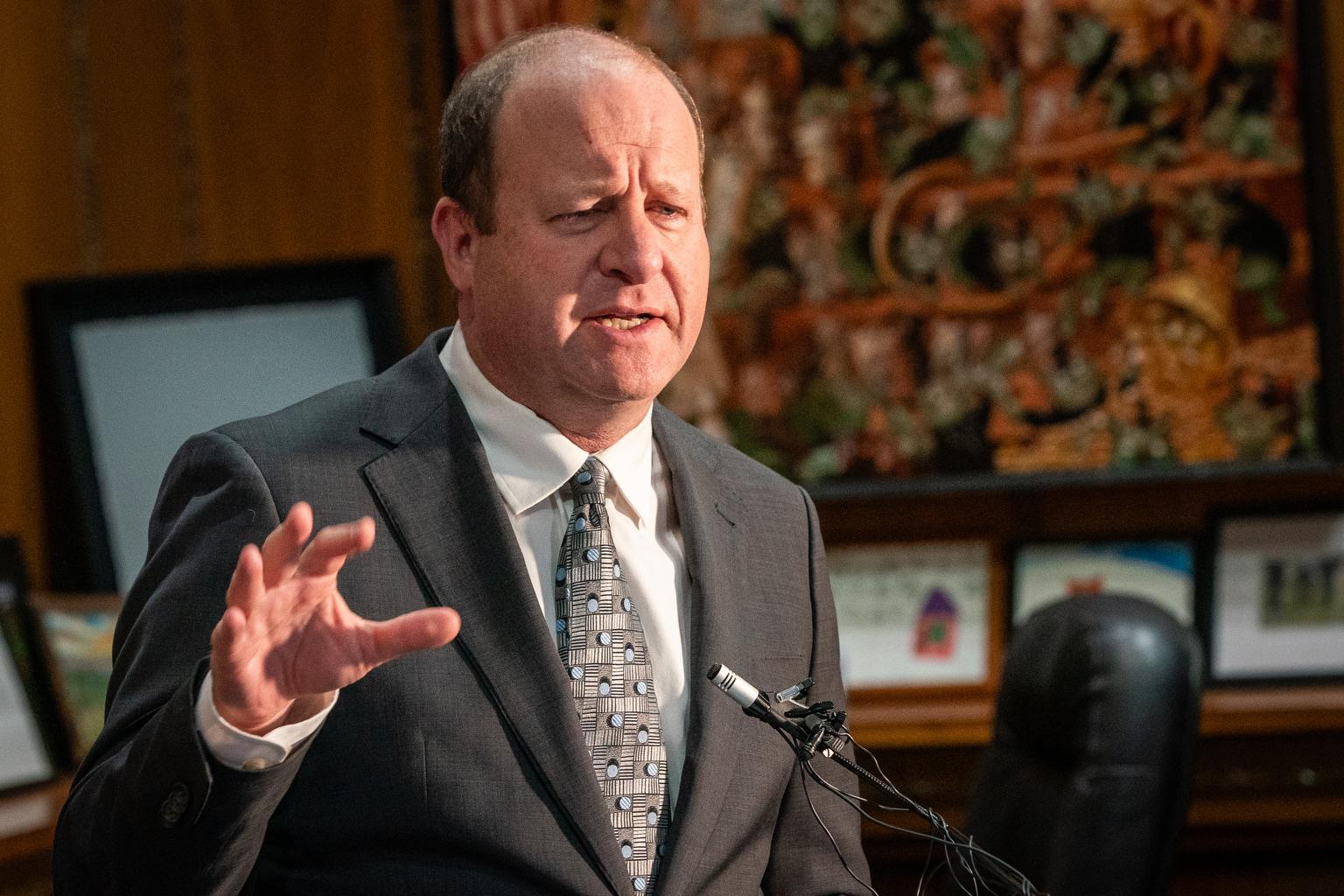
Gov. Jared Polis granted clemency to more than two dozen people on the Friday before Christmas week.
The criminal convictions span decades, with some having occurred 40 years ago. Polis applauded the recipients for their dedication to sobriety and for serving their communities over the years.
They include a woman convicted of drug distribution who has been sober for 16 years and helps others overcome their own struggles with addiction; a man, convicted of drug distribution, who became sober, built a successful business and promotes opportunities for businesses in marginalized communities; another man convicted of indecent exposure and drug possession in the 90s who now works as a substance abuse counselor and helps organize ocean cleanups where he lives.
One pardon was granted to Buck Glanz, who was convicted of racketeering in 2011. Glanz later went to law school and became a public defender.
“Not everyone earns the privilege of a second chance,” wrote Polis to Glanz. “But you have demonstrated that you deserve one. I hope you will make the most of this opportunity and treat your obligations seriously. It will require hard work and dedication to stay on the right path. But I have confidence you will move beyond these past mistakes and build a better life for yourself and your loved ones.”
Glanz is now a public defender in Albuquerque. In a phone interview with CPR News, he said he was deeply grateful to Polis for the pardon.
“I really appreciate him recognizing that I've made a lot of efforts since my conviction,” Glanz said. “And it just feels really good to have that weight off my shoulders.”
Glanz said he took the law school entrance exam while in the Jefferson County detention center and that he was inspired to pursue the law by his situation.
“Honestly it was the feeling of disconnect you have when you're in custody,” said Glanz. “Where you can't talk to anybody about your situation except for your attorney, and it made me want to help people go through that process.”
Colorado’s constitution gives the governor broad discretion to grant clemency through pardons and commutations. A pardon is a forgiveness for a crime after an offender completes a sentence. For felony convictions, seven years must pass from the completion of the sentence. Misdemeanors require three years to pass from the end of their sentence.
A commutation modifies a sentence. One of the four commutations granted by Polis went to Victor Clark, who was serving a 66-year sentence for his participation in a series of bank robberies. He has been imprisoned for the last 13 years but will now become parole-eligible in 2030. Polis noted that Clark’s sentence was more severe than his co-defendants.
“This disparity, coupled with the work you have done while incarcerated, supports granting your application,” wrote Polis in a letter to Clark. Polis also remarked on Clark’s awareness of how his crimes impacted victims. Clark is involved in the church at the Arkansas Valley Correctional Facility and lives in a special unit reserved for inmates dedicated to bettering themselves.
The timing of clemency is up to the governor, but it often coincides with the end of the year and the holiday season.
“You are remorseful and ready to advance to a new phase of life. I believe you will be successful upon your release,” wrote Polis to Clark.









